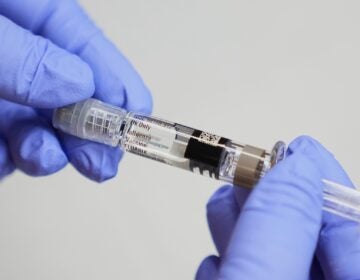Doctors as gods

(karn684/Big Stock Photo)
In India, there is an old saying that doctors are second to god on this earth. The Diagnostic and Statistical Manual of Mental Disorders, however, describes a God complex as a narcissistic personality disorder.
“Those who are occupied in the restoration of health to others, by the joint exertion of skill and humanity, are above all the great of the earth. They even partake of divinity, since to preserve and renew is almost as noble as to create.”—Voltaire.
The 11th century Greek physician Galen had a huge influence on the medical knowledge of his time, and for several hundred years afterwards. He wrote some 500 medical treatises and lectured widely on topics as diverse as anatomy, physiology, pathology, and diagnosis, as well as psychology and ethics. Roman Emperor Marcus Aurelius called him the best physician in the world — an accolade that Galen would surely have agreed with, describing his medical colleagues as ignorant and money grubbing.
Hardly any wonder, then, that Galen’s autobiography focused on his brilliant works and opinions, or that in an article in The Spectator titled “The cult of the prima doctor,” Peter Jones wrote, using his subject’s expertise in both analgesia and anatomy: “Galen was a pain in the backside, staggeringly arrogant and high-handed, disdainful of any doctor (let alone patient) who did not believe every word he said. If ever there was a doctor with a ‘God complex,’ it was Galen.”
Literature abounds with godlike doctors: Dr. Victor Frankenstein created human life; Dr. Hannibal Lecter made a meal of it; mild-mannered Dr. Henry Jekyll had to hide his propensities and took a potion to turn himself into a superhuman maniac; and H.G. Wells’ Dr. Moreau developed creatures by fusing humans and animals. But if real-life doctors were to go rogue, it could do serious harm.
In India, there is an old saying that doctors are second to god on this earth. The Diagnostic and Statistical Manual of Mental Disorders, however, describes a God complex as a narcissistic personality disorder.
Effective medicine is about more than science. It also requires doctors to understand people — most importantly, their patients. The Agency for Healthcare Research and Quality campaigned to get patients to take a more active role in their care by asking more questions of doctors. The other side of that is for doctors to give better, more understandable answers. However, with studies showing that physicians will interrupt a patient after a mere 18 seconds in the room, this might be a tall order.
The problem is that, when you’re in a cramped examining room and in various stages of undress, you are already 30-love down in your relationship with the doctor. Though if you’re a surgical patient, you don’t have to worry as much about how the surgeon and anesthesiologist relate to you — because you are or soon will be fast asleep and in no condition to quiz the docs.
Are some specialties more godlike than others? Surgeons and cardiologists probably win the prize for omniscience, while psychiatrists and radiologists are the most docile. But even if doctors are not precisely God, they sometimes possess a godlike quality: Increasingly, the medical profession has great power over life and death decisions, particularly those affecting the terminally ill … or those who, for whatever reason, opt to end their lives. This is where people place great faith in doctors because the physician has the pharmaceutical and prognostic wherewithal to make an informed and objective decision. And it can be tempting to give up control to a doctor. In a survey conducted by the Atlantic, “Questioning the doctor: Challenging a god” one respondent sad that he felt uneasy locking horns with someone who knew more than he did about his medical condition; and another who believed that questioning the doctor might put him on a “difficult patients” list.
With knowledge increasingly at our fingertips, it might be that the tide is slowly turning. After all, anybody can google “narcissistic personality disorder” and thrust the printout in front of the doctor.
Does the god complex prevail among today’s doctors? Probably not. They see about them great evidence of human frailty and mortality and quite often they can do little or nothing about it. If anything, far from being gods themselves, they have godliness thrust upon them by patients who want to see the doctor as infallible and all-powerful. So it’s not always doctors and their egos that are at fault; it’s that sometimes patients expect godlike powers: They want answers, and they want them now. They even ascribe to doctors magical powers so that M.D. might stand for Magic Dispenser. But in the real world, doctors are only human and their science is not always an exact one.
WHYY is your source for fact-based, in-depth journalism and information. As a nonprofit organization, we rely on financial support from readers like you. Please give today.





